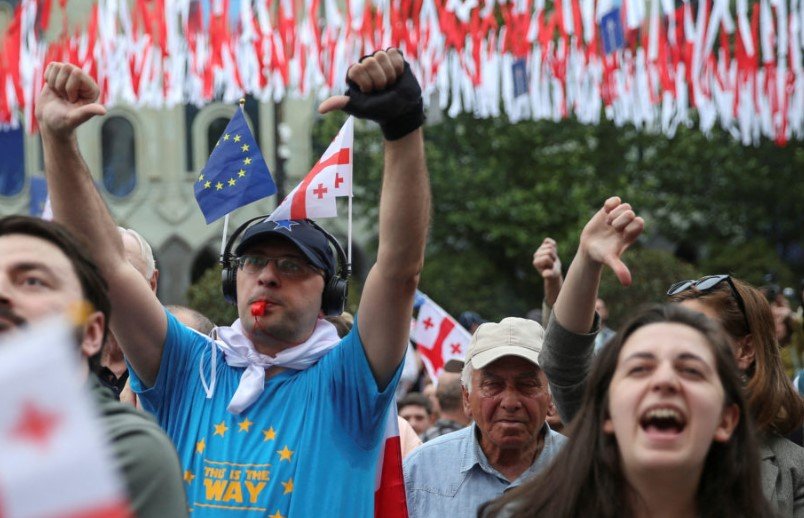From today, September 3, the mechanisms of the controversial “Russian law” are officially in effect in Georgia. This law mandates that organizations receiving more than 20% of their funding from foreign sources must register as “carriers of the interests of a foreign power.” The law has sparked significant debate and concern among non-governmental organizations (NGOs) and media outlets, many of which fear it will stifle their operations and limit their ability to function independently.
The Controversial Law and Its Implications
The implementation of the “Russian law” has been met with widespread opposition from various sectors of Georgian society. Critics argue that the law is a direct attack on civil society and freedom of expression. By labeling organizations that receive foreign funding as “foreign agents,” the law imposes stringent regulations and monitoring requirements that many believe are designed to suppress dissent and limit the influence of international partners.
The Ministry of Justice now has the authority to forcefully register organizations that do not comply voluntarily. This has led to a climate of uncertainty and fear among NGOs and media organizations, many of which rely on foreign funding to carry out their work. The law’s critics argue that it will lead to self-censorship and a reduction in the diversity of voices and perspectives in Georgian society.

Despite the opposition, the government has pushed forward with the law, arguing that it is necessary to ensure transparency and accountability. Proponents claim that the law will help protect national interests and prevent foreign interference in domestic affairs. However, the lack of clarity and the potential for abuse have raised significant concerns about its long-term impact on Georgian democracy.
The Response from Civil Society
In response to the new law, many NGOs and media organizations have expressed their determination to continue their work despite the challenges. Some have registered under the new requirements, viewing it as a temporary measure to avoid fines and other penalties. Others have vowed to challenge the law in court, arguing that it violates fundamental rights and freedoms guaranteed by the Georgian constitution.
The Constitutional Court has yet to make a final decision on whether to suspend the law temporarily. This decision is eagerly awaited by many, as it will determine the immediate future of numerous organizations. In the meantime, civil society groups are mobilizing to raise awareness about the law’s implications and to advocate for its repeal.
International organizations and foreign governments have also voiced their concerns about the law. They argue that it undermines democratic principles and could harm Georgia’s international reputation. The law has been compared to similar legislation in Russia, which has been used to crack down on dissent and limit the activities of independent organizations.
Looking Ahead: The Future of Civil Society in Georgia
As the mechanisms of the “Russian law” take effect, the future of civil society in Georgia hangs in the balance. The law’s implementation marks a significant shift in the regulatory landscape, one that could have far-reaching consequences for NGOs and media organizations. The coming months will be crucial in determining how these organizations adapt to the new requirements and whether they can continue to operate effectively.
The broader implications of the law are also being closely watched. Its impact on freedom of expression, democratic governance, and international relations will be key areas of focus. As Georgia navigates this new era, the resilience and determination of its civil society will be put to the test.
The activation of the “Russian law” represents a pivotal moment for Georgia. It highlights the ongoing struggle between government control and civil society independence. The outcome of this struggle will shape the future of democracy and human rights in the country.
